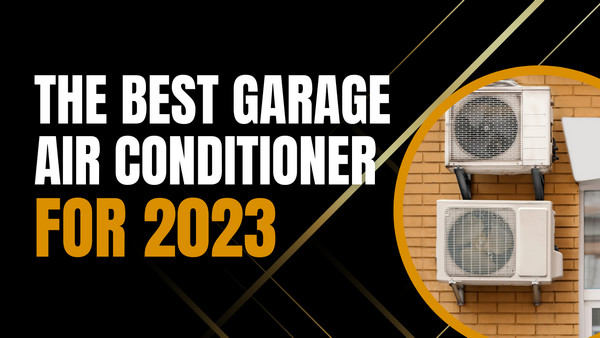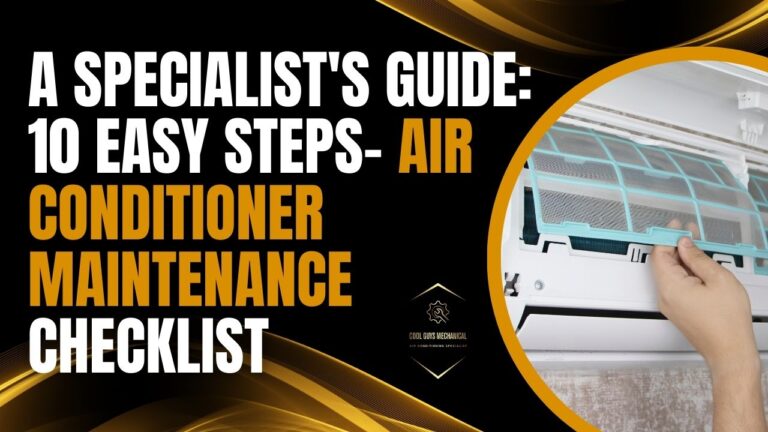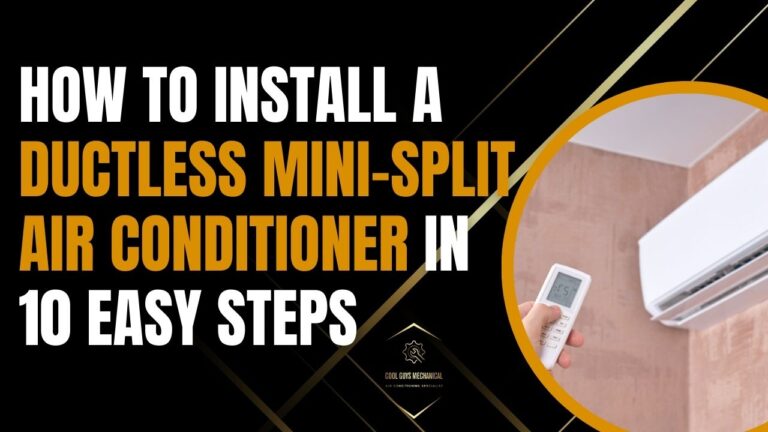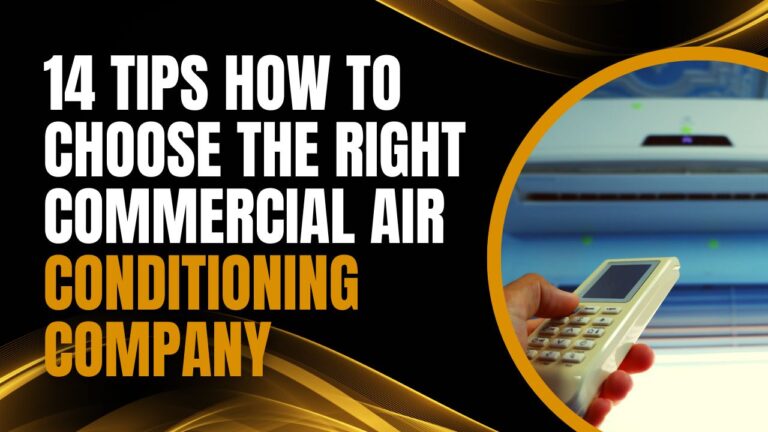There’s no stopping it – the earth’s temperature gradually increases and as the weather warms up, garages can become uncomfortably hot and stuffy. If you’re working on projects or spending any significant amount of time in the space, you’ll feel the heat and the need to stay cool. That being said, knowing how to choose the right local AC contractor for your garage has its advantage.
Rather than sweating and suffering in a very uncomfortable garage, you can hire affordable AC services in Oahu instead. Fortunately, there are a variety of air conditioning options available to help keep your garage cool and comfortable. In this blog post, we’ll discuss the best options for garage air conditioners, how to determine what size AC unit you need, insulating your garage, and how to choose the best garage air conditioner for your needs.
QUESTION: Is it okay to integrate your garage AC into your central AC system?
Connecting the ductwork of your home’s central air conditioning system to your garage AC can pose a risk to your safety. This is especially true if you still park vehicles in your garage, as carbon monoxide fumes could enter your home’s ducts, creating a hazardous environment.
To avoid such dangers, it is advisable to seek the assistance of licensed professionals when installing an air conditioner in your garage. They can ensure proper climate control while protecting your family from the harmful effects of carbon monoxide.
In some cases, with the help of professional air conditioning services, you can integrate your garage AC into your central AC system but with some factors to consider.
First, you have to make sure that your central AC system has enough capacity to cool your garage as well as the rest of your home. If your system is already at maximum capacity, integrating your garage AC may not be possible.
Aside from that, if your garage is not well-insulated or has a lot of air leaks, integrating your garage AC into your central AC system may not be as effective. You may need to add insulation and seal any air leaks in your garage to ensure that the cool air from your central AC system stays in your garage.
Overall, to ensure your safety, it’s important to consult with the right local AC contractor to determine the best possible course of action for your specific situation.
Best Options for Garage Air Conditioners
If you want to stay cool in your garage while doing some handy work, installing an air conditioner is a sure way to do it. The AC unit draws in cool air from outside and circulates it through the garage, eventually cooling the entire area.
When it comes to installing an air conditioner in your garage, you can either DIY or have it installed professionally. You can purchase an air conditioner that is specifically designed for garage use or buy an outdoor unit and install it in your garage. The first option is more affordable, but it may generate noise and consume more energy.
The type of air conditioner suitable for your garage depends on the garage’s size, wall insulation, and whether the garage door is operable. An experienced AC technician can guide you through the process, taking into account cooling capacity requirements, energy star ratings, and your home’s specific circumstances. That being said, these are your best options for garage air conditioners.
Ductless Mini-Split Air Conditioner
These air conditioners are a reliable option for cooling your garage, with their energy efficiency, easy air conditioning installation, and individual temperature control being the primary benefits. However, they may not be the most cost-effective option, and the aesthetics of the indoor unit may be a concern for some homeowners.
Portable Air Conditioners
Given their name, these air conditioners are easy to move and install, making them an excellent choice for garages. They come in different sizes and cooling capacities, and they typically require a window or vent to exhaust the hot air outside.
Window Air Conditioners
Window air conditioners are another popular option for garages. They are installed in a window or a hole in the wall and are designed to cool a single room. Window air conditioners come in different sizes and cooling capacities, so it’s important to choose one that’s appropriate for the size of your garage.
Swamp Cooler
Swamp cooler or also known as an evaporative cooler can be a good option for cooling your garage. It has lower energy costs, it’s better for the environment, it works well in dry climates, it provides fresh air, and it’s easy to install and maintain.
How to determine what size AC unit you need for your garage
In order to determine the appropriate size of AC unit that you need for your garage, these are the things that you need to consider:
The size of the garage: The larger the garage, the larger the AC unit needed to effectively cool it.
The insulation of the garage: A well-insulated garage requires less cooling power than a poorly insulated one.
The location of the garage: If the garage is located in a particularly hot or humid region, you may need a larger AC unit.
The number of garage doors and windows: The more doors and windows, the more cooling power you will need to compensate for heat gain.
The intended use of the garage: If the garage is used as a workshop, for example, it may generate more heat, which may require a larger AC unit.
Once you have considered these factors, you can use a BTU (British Thermal Unit) calculator or consult an HVAC professional to determine the appropriate size of AC unit for your garage. The BTU calculator will take into account the factors above, as well as your desired temperature, to calculate the required cooling capacity in BTUs.
It’s important to choose an AC unit that has a cooling capacity that matches the BTUs required for your garage. Keep in mind that a garage may require a larger AC unit than a similarly sized room in a home due to its lack of insulation and potential heat gain from garage doors and windows.
To determine the appropriate size of the AC unit that you need for the size of your garage, all you need to do is measure the square footage of your garage and use the following formula:
Square footage of the garage X 25 = BTUs required
For example, if your garage is 300 square feet, you’ll need an air conditioner with a cooling capacity of at least 7,500 BTUs (300 x 25).
Insulating your Garage
Insulating your garage can help to reduce the amount of heat that enters the space, making it easier to cool. Insulation also helps to keep the garage warm in the winter. You can insulate your garage by sealing air leaks, installing insulation, insulating the walls, ceiling, and garage doors, and considering adding a radiant barrier. Properly insulating your garage is an important step in improving its energy efficiency and creating a more comfortable space to work or spend time in.
How to Choose the Best Garage Air Conditioner
When choosing a garage air conditioner, there are several factors to consider. Here are a few things to keep in mind:
-
Cooling Capacity
It’s best to choose an air conditioner with a cooling capacity that’s appropriate for the size of your garage. This will make sure that you’re getting enough cool air no matter how long you’re staying in the garage.
-
Energy Efficiency
It’s all about balance so look for an air conditioner with a high energy efficiency rating to save on energy costs. You’ll want an AC unit that gives comfortable coolness without breaking the bank when the electricity bill comes.
-
Portability
If you plan to move the air conditioner from room to room or take it with you when you travel, choose a portable air conditioner.
-
Noise Level
Some air conditioners can be quite loud, which can be distracting if you’re working in your garage. Look for an air conditioner with a low decibel rating.
-
Price
Air conditioners range in price from less than $100 to several thousand dollars. Choose an air conditioner that fits your budget and meets your cooling needs.
In the end, the best garage air conditioner for 2023 ultimately depends on your specific needs and preferences. If you need a cooling solution that’s easy to move and install, go for a portable AC. You can also check out window ACs and mini-split ACs, which are more permanent solution that offers higher energy efficiency and quieter operation. You can also go for a swamp cooler which has tons of pros and fewer cons.
Regardless of which type of air conditioner you choose, be sure to select one with the appropriate cooling capacity for your garage, insulate your garage to reduce heat transfer, and choose an energy-efficient model to save on energy costs. Remember to consult the best AC technician to help you with all your air conditioning needs.










